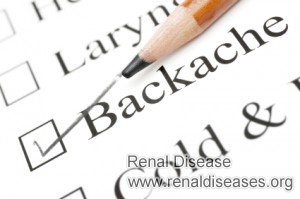Whatsapp: +8615512139310
- Email us:
 Renal cortical cyst are simple kidney cyst that are found in the position of kidney called cortex. These fluid-filled sac can grow in one or both of the kidneys. Here we will talk about the symptoms and treatments of cortical cyst on left kidneys.
Renal cortical cyst are simple kidney cyst that are found in the position of kidney called cortex. These fluid-filled sac can grow in one or both of the kidneys. Here we will talk about the symptoms and treatments of cortical cyst on left kidneys.
Symptoms of cortical cyst on left kidney
Generally speaking, simple cortical cyst are usually noncancerous so many sufferers go through their life without knowing they have them. That’ s to say, if these cysts are small and don’t spread to right kidney, patients may not have any symptom. If one cortical cyst on left kidney grows too big or ruptures, patients may have following symptoms:
-Swelling (edema): cysts will damage kidney function. Edema can be caused by loss of renal function.
-Pain. In some cases, however, pain can occur between the ribs and hips when cysts enlarge and press on the other organs.
-High Blood Pressure (Hypertension). As kidneys are responsible for regulating blood pressure. When cortical cyst damages the kidney tissues, high blood pressure will present.
-Hematuria or blood in urine.
If you have one or more symptoms with the disease, you’d better take some effective treatments to control your condition. If not, these sacs may lead to irreversible damage to the kidney. Any questions, you can email to us at renal-disease@hotmail.com or leave a message below directly.
Treatments for cortical cyst on left kidney.
Surgery
Usually, a surgical process to pump cystic liquid and insert hardening agent may be operated. The cystic fluid is hardened and replaced with alcohol. The tissues that makes up the cyst is hardened. However, the recurrence rate is pretty high. In some cases, the patients have cysts that grow in deep of the kidney, making it impossible to do a surgery.
Micro-Chinese Medicine Osmotherapy
compared with surgery, is a conservative treatment and focuses on all cysts without any side effect. With the help of many herbal medicines, this treatment indeed has an obvious benefit of shrinking fluid-filled cyst, but this process may need a little longer time than surgery. Therefore, the person who decides to use this treatment should be more patient.
Diet Therapy
Patients should focus on protecting remaining renal function. Requirements are included low-protein diet, low salt diet, and high vitamin diet. Meanwhile, patients should keep away from alcohol, spicy food, coffee, etc.